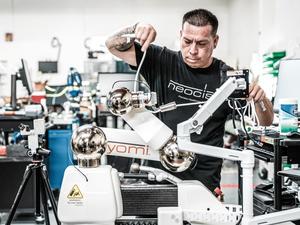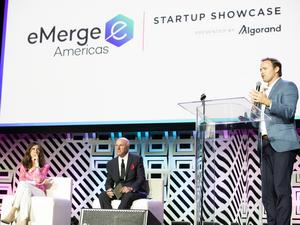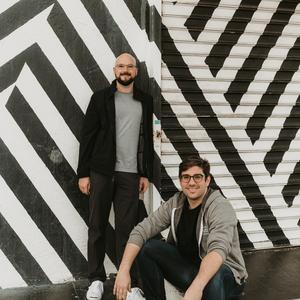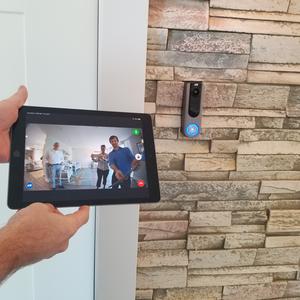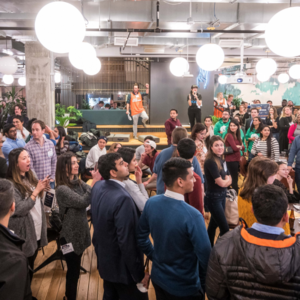
Severence MacLaughlin turned to Hollywood when he was trying to come up with the perfect name for the artificial intelligence business he was developing.
Any name for the business, which uses medical AI to predict the onset of certain diseases, needed to be forward-thinking. Then, he started to think about his favorite '80s movies.
"I was sitting at my kitchen table and trying to figure out a name that would encompass looking to the future and was thinking through all of the movies I grew up with," he said. "And then it hit me: 'Back to the Future', a movie about going into the future and bringing back [information] to present day."
That's when he decided to go with DeLorean Artificial Intelligence, after the vehicle that acted as a time machine in the popular film series.
Founded in 2018, the company's AI analyzes patient data to predict the onset, transition and next best actions for ailments such as chronic kidney disease, end stage renal disease, diabetes and cardiovascular disease. The medical AI can predict when a person might develop one of those conditions and how the disease could progress. The goal is to stave off chronic illnesses and, ultimately, extend lives.
In September DeLorean AI announced it became the first medical AI product to be biologically validated by a third-party laboratory. The results, verified through blood tests and and hospitalization follow ups, confirmed there is scientific evidence to indicate the startup's technology is capable of making accurate predictions.
That can help physicians, health insurance companies and hospital groups determine the best course of care for patients and prioritize that care based on risk-level and other factors, MacLaughlin said. Medical providers can then work to avert those chronic conditions with early detection or stop the disease in its tracks to improve outcomes for patients.
"For example, if the model says there's a 78% chance a patient will become pre-diabetic in the next few months, a signal will notify the patient and their doctor that says they should have their glucose tested," he said.
That information can aid physicians, who often see a dozen or more patients a day. As a result, they may not have time to analyze patient data to make similar predictions.
DeLorean's medical AI model is already being used by 13 health care companies, including one Fortune 500 business. The startup does not need to receive regulatory approval for the product because it does not offer clinical diagnoses.
"We're not making a diagnosis; we're providing information to health care professionals and insurance companies to help them make decisions," McLaughlin said. "So we don't need to be regulated by agencies like the FDA."
The company only works with high-tech firms that comply with HIPAA guidelines and does not collect patient data, according to its website. Instead, that patient data is stored on the client's server and protected by that businesses cybersecurity software.
DeLorean expects its medical AI product will touch 45% of U.S. end stage renal disease patients and 38% of chronic kidney disease patients by the of the year, according to a news release.
And those conditions are prevalent. An estimated 15% of U.S. adults are estimated to have chronic kidney disease, and 9 out of 10 of those people do not know they have it, the U.S. Centers for Disease Control reports. More than 786,000 Americans have end stage renal disease, with 71% on dialysis and 29% with a kidney transplant.
After years of bootstrapping, DeLorean is now in the process of finishing its first seed round. That funding will support the business as it scales over the next two years, a process that will include launching financial and sales AI programs, as well.
DeLorean is focusing on establishing a foothold in Florida in particular as the business grows.
"There's a big push in Miami-Dade, Broward and Palm Beach counties," he said. "We want to make sure we're investing in Florida health care and showcase that around the country."
For more stories like this one, sign up for Miami Inno newsletters from the South Florida Business Journal and the American Inno network.
